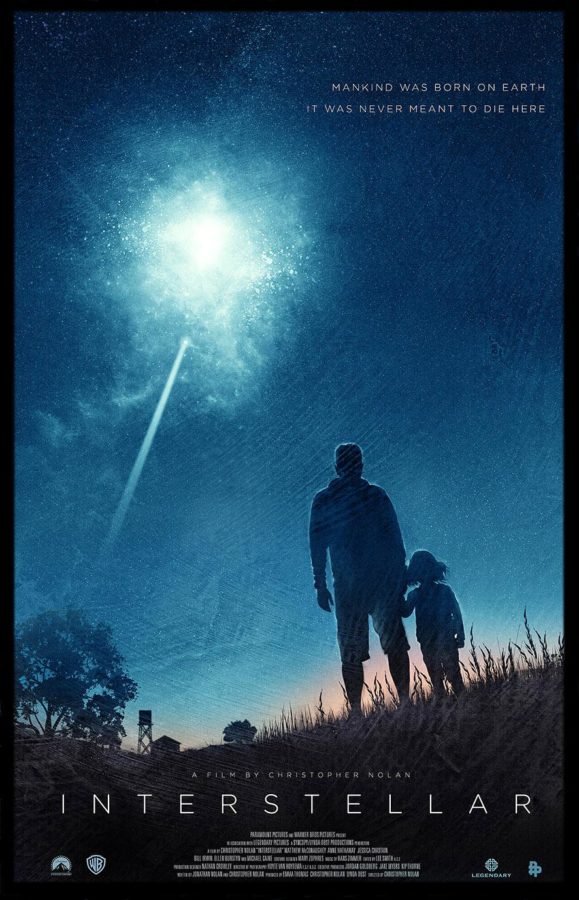3/5
There is no denying the influence Stanley Kubrick’s “2001: a Space Odyssey” has on Christopher Nolan’s “Interstellar.” From the basic premise of deep-space exploration to implementing the latest technological know-how on how space travel might work. “Interstellar” clearly follows the footsteps of the definitive science fiction movie. And while it may not quite reach those lofty heights, it still tells a gripping tale of space travel and survival, even if the emotional parts aren’t as effective as they could be and the final act falls into the black hole of pseudo-science.
In the future, the world is slowly dying from a global-scale Dust Bowl. How it happened is left ambiguous, but the shots of people struggling to survive amidst massive dust storms paints a great picture of the hopeless situation.
Cooper (Matthew McConaughey) is an idealist and an astronaut in a world that has no use for either, as humanity has become so cynical and focused on mere survival that even the great accomplishments of yesteryear have been dismissed as hoaxes. When he learns of an attempt to find a new habitable planet, Cooper leaves his beloved 10-year-old daughter Murph (Mackenzie Foy) behind in order to save the human race, knowing he will probably never see her again.
When the rocket takes off, the movie follows suit. The shots of outer space are breathtaking and the planets they visit have spectacular vistas of their own. Using very little special effects to bring it to life is a wonder to behold. The highlight is the visual splendor as the main characters travel through a mysterious wormhole to reach potentially habitable worlds.
And yes, the scene is very reminiscent of the final sequence of “2001.” And it’s not the only one reference to that scene, although to explain more would be a spoiler. There is also a contrast in a robot named TARS, although unlike the infamous HAL 9000 he is the one of the most selfless and heroic characters. The biggest difference is that “Interstellar” tries to explain all the psychedelic happenings onscreen.
The characters are the weakest part. Due to time displacement, Murph ages faster than her father, allowing an older actress (Jessica Chastain) to replace the role as she struggles with her feelings of abandonment by her father. Chastain isn’t bad in her role, and what happens on Earth affects the crew, but it’s not as entertaining to watch as traveling through spacetime is.
It would be loathe to not bring up the ending, which is easily the most controversial part of the film. Without giving too much away, the finale has been called either moving and emotional, or pandering pseudo-scientific drivel.
Christopher Nolan is one of the most famed filmmakers of our time, but he’s no Stanly Kubrick. “Interstellar” is a decent movie, but it falls far short of the film it is trying so hard to emulate. For those who want space travel, “2001” still can’t be beat, but “Interstellar” is at least a fun alternative, especially in IMAX.



